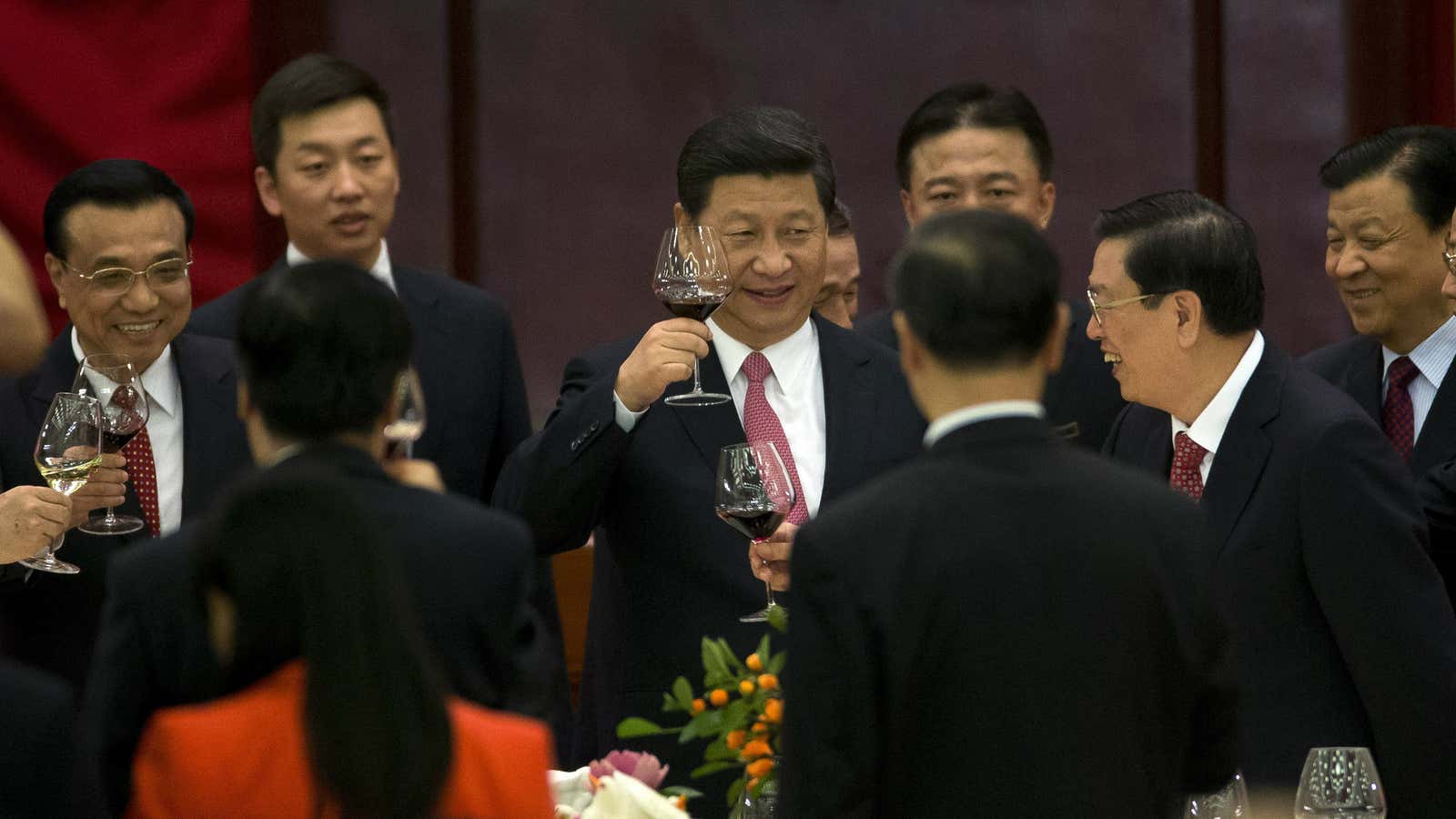China has released a white paper hailing the country’s “tremendous achievements” when it comes to protecting human rights, a pre-emptive rebuttal to criticism that will inevitably arise during a United Nations panel on torture later this year.
The report, released without warning by the State Council today, is also an illustration of the disconnect between China’s definition of human rights and that of its critics. Specifically, China equates economic development with human rights—as opposed to the UN’s Universal Declaration of Human Rights which includes statements such as “No one shall be subjected to torture or to cruel, inhuman or degrading treatment or punishment,” and “No one shall be subjected to arbitrary arrest, detention or exile.”
The Chinese report’s first section describes the “right to development’ and highlights the country’s GDP growth of 7.4% last year and increase in annual per capita disposable income (20,167 yuan, or $3,240, an 8% increase from the year before.) According to the white paper, this is “China’s unique pattern of protecting human rights.”
Other indicators listed in the white paper range from the fact that ordinary Chinese are now wealthy enough to take some 117 million trips abroad every year to telephone penetration in the country—94.5 per 100 people—or that box office receipts increased 36% in 2014 from the previous year.
“The tremendous achievements China has made in its human rights endeavors fully demonstrate that it is taking the correct path,” the paper says. Here are some of the ways, according to the white paper, that China believes it is promoting human rights.
Arresting everyone
A recent Human Rights Watch Report criticizes China’s penal system for torturing arrested suspects by beating them, shackling them to chairs, or hanging them by their hand cuffs. Other groups have criticized the increase in arrests of moderate activists, human rights lawyers, and regular citizens.
Chinese officials, in contrast, view arrests as a sign of better policing. The white paper says that over the past year it has prosecuted 712 people for crimes of terrorism and “inciting separatism,” a charge often given to activists in Tibet or Xinjiang. The report also says that 168,900 people were arrested last year for drug-related crimes.
Movies for poor rural areas
While China faces accusations that it represses ethnic minorities, today’s white paper lauds the country’s rural film program as an example of its promotion of “basic cultural rights.” Every village receives at least one film a month and outdoor film viewings are increasingly giving way to indoor ones played at local rural libraries.
As for ethnic minorities, more local radio and television stations have been added. ”Ethnic minority ares have improved their cultural public service system,” the report says, pointing out the 104 radio stations and television stations now available in in ethnic autonomous areas.
Freedom of speech
China’s censorship of online discussion has reached new heights with internet users detained just for looking at or posting disrespectful photos of president Xi Jinping. Censors are now openly policing the cyber sphere. But according to the report, “freedom of speech [is] better protected.” The paper goes on to list the number of newspapers and books published last year—over 55 billion copies—and the fact that internet penetration has reached 47.9%.
“The public can air opinions, and raise criticisms and suggestions freely through the news media, and discuss problems of this country and society,” the report says.
Ahead of a review by the UN Committee Against Torture in six months, rights groups have already begun submitting exhaustive accounts of China’s human rights abuses. Today’s white paper may not do much to change anyone’s mind.
